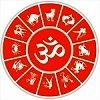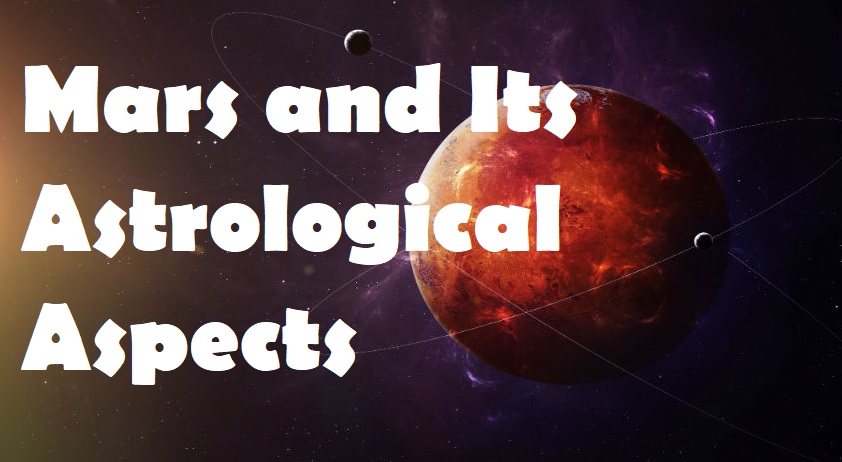As everyone knows, Mars aka the red planet is the fourth planet from the sun. It is named after the Roman God of War. In terms of astronomy, it is the second-smallest planet. This dynamic planet experiences various seasons while having canyons, polar ice caps, and extinct volcanoes. As it comes to Vedic astrology, Mars is the most discussed planet. The position of Mars in the horoscope indicates the existence of Manglik dosha, also called Bhoumo Dosha or Kuja Dosha, the highest talked about Graho Dosha as explained by a leading astrologer in Kolkata.
Origin
In Hindu mythology, Mars or Mangal is the God of war. It is linked to Lord Kartikeya as well. But there are differences in opinion regarding the origin of Mangal. According to Vishnu Purana, Mangal is the son of Lord Vishnu’s Varaha Avatar. On the other hand, Shiv Purana says Mangal was the result of the sweat (some say blood) drop of Lord Shiva while performing Tandava.
Characteristics
As Mars or Mangal was the outcome of Tandava, it is often referred to as both construction and destruction, i.e., both stability and dissolution. In a nutshell, it can be said that Mars is an unstable planet, in terms of Vedic astrology. It is the combination of both positive and negative qualities. Mars is the owner of Arise, the first house of a birth chart. It is responsible for many significant characteristics like fist, strength, courage, warmth, conflict, vigor, victory, and valor. A person gets the energy for his or her materialistic deeds from Mangal which controls the enthusiasm and strength of the concerned person to continue with different activities. Mars has a cruel vision and at the same time, is merciful. It is agile and active. And these traits of Mangal control the character of a human being. It influences the character and nature of a person. The position, promises, and strength of the red planet in the natal chart of a person control the performance and doings of him/hers. Mars boasts Tamoguan or Tamas which describes the characteristics of disorder, imbalance, impurity, destruction, delusion, negativity, inertia, chaos, anxiety, apathy, violence, lethargy, and ignorance. And these are the negative sides of Mars. The status of the planet has similarities with the status of the Sun, the Rajoguni planet that influences traits like passion, ego, individualism, dynamism, balancing between good and bad, and so on. And on comparing these two Gunas, astrologers often consider TamaGuna as the unstable state of RajaGuna. In other words, RajaGuna is the derivative of TamoGuna and so, it can be said that Mars is the unstable version of the Sun. A leading Vedic astrologer in Kolkata says that though Mars has multiple negative qualities, it possesses some positive qualities of the Sun within it.
Theories and Gunatmak perception
Every planet is described as a combination of three Gunas – Satwa, Rajas, and Tamas. Unfortunately, Mars has the exorbitance of Tamas and thus it can stimulate the negative qualities of a person. No planet can act or multiply like Mangal. And this feature makes Mars different from other planets. Mangal is considered a qualitative planet, in Indian astrology.
At the same time, the best astrologer in Kolkata says that Mars is the unstable version of the Sun, the key planet in Vedic astrology. It is the governor of the soul providing the inner qualities. Sun, for example, if considered as the solid state, Mars will be the plasma state of the Sun that provides inner qualities from outside.
Numerology
9 is the root number of Mars. The number has some unique features. When a number is added to 9, it gives the same result. If the root number 9 (Mars) is added to the root number of any planet, the outcome will be the same while the resultant number will be the same, and also the planet will be the same. Let’s check it out:
Sun root number – 1+9=10=1+0=1
Moon root number – 2+9=11=1+1=2
And so on…
So, we get the conclusion that adding Mars to any other planet results in the planet itself. In numerological concept, Mars has the power to get absorbed in any planet while conjoined with that while supporting the features of Mars. Now the question that comes to mind is if Mars just gets absorbed into any other planet without leaving any consequences. Well, it does leave traces of its presence. Every planet has its Gunatmak traits. Guna denotes quality. Guna also denotes multiplication. We know that the root number of the Sun is 1. When it is multiplied by 9, the outcome is 9. Likewise, the root number of Ketu is 7. And when it is multiplied by 9, the result will be 63 which means 6+3=9. So it shows that even if Mars is absorbed into any other planet, its characters will exist there as well.
Common notion
Often people are afraid of the conjuring of Mars and Saturn as there is a notion that the result is nothing but destruction and this is not wrong. Saturn tends to provide a good result when sitting in the 3rd, 6th, or 11th house. But when it sits in the 9th house, it would result in destruction.
Astrology is a divinatory practice that was discovered by the sages. They have chosen root numbers judiciously and in a justified way. According to some theories, the root number of Mars is 3, not 9. However, most astrologers strongly believe that the root number of Mars should be 9. Mars stays in a Rashi for 45 days. And numerology says that the resultant number of 45 is 9. Also, it takes 540 days for Mars to traveling through the entire Rashichakra. And the resultant of 540 is 9 again. And these two significant statistics prove that the selection of 9 as the root number of Mars is proper and acceptable.
So, these are some important astrological aspects of Mars or Mangal that pertain to human life to a significant extent.

